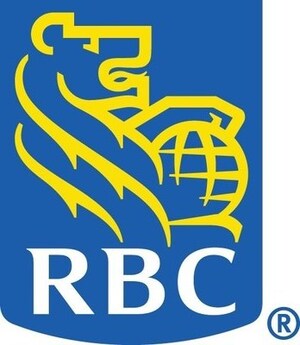ONE-IN-THREE U.S. CONSUMERS HAVE ALREADY CUT SPENDING BECAUSE OF RISING GAS PRICES: RBC CONSUMER OUTLOOK INDEX
Consumer Confidence Declines as Worries Mount on Rising Fuel and Food Prices, Mideast Instability
NEW YORK, March 4 /PRNewswire/ - One-in-three U.S. consumers (32 percent) has already significantly reduced discretionary spending because of the increase of rising gas prices, according to the monthly RBC Consumer Outlook Index. With the national average price at approximately $3.20 per gallon at the time this survey was conducted (February 25-28, 2011) another one-in-five (18 percent) say they would reduce spending if gas prices climb to $3.75 per gallon. Four-in-10 (41 percent) place their pain threshold at $4.00 per gallon or more.
"There has been quite a lot of debate about the impact of rising gasoline prices on consumption in general," said RBC Capital Markets chief U.S. economist Tom Porcelli. "Specifically, the conversation focuses on what particular price level of gasoline would lead to a shift away from discretionary spending. The RBC survey finds that this level has already been breached for 32 percent of consumers, and is within range for another 18 percent. Somewhat encouragingly, however, is that 40 percent of Americans place their threshold at or north of $4 per gallon."
Consumer confidence for March sank for a third straight month, with the RBC Consumer Outlook Index sliding to 42.5, down 2 points from February's 44.5. The March decline followed smaller decreases the two preceding months, as consumers were further affected by climbing fuel and food prices, instability in the Middle East and budget battles in Washington, D.C.
"What really stands out to us is worry about the future," said Porcelli. "The geopolitical issues of recent weeks are seeping into expectations about markets and respondents' financial position. The number of people who expect the value of their investments to 'get worse' rose to the highest level in four months. The erosion in personal finances has translated into people thinking they will have less to spend on discretionary items, and that number rose to the highest level in at least a year."
The survey found growing concern about inflation, with consumers expecting that higher raw material costs will drive even greater price increases in the sectors already giving them the most trouble. Nine-in-10 consumers (93 percent) expect to see higher oil and gasoline prices and 90 percent expect to see higher food and grocery costs. Consumers had lower inflation expectations for durable goods, with 66 percent expecting higher prices for clothing, 56 percent for automobiles and 52 percent for appliances.
"Aside from geopolitical fears, we believe these results also reflect increased concern about rising prices," said Porcelli. "While the overwhelming majority expects prices will rise for energy and food, these are not the only areas of concern. Our survey suggests significant worry about prices exists in clothing, autos and appliances. This phenomenon is not limited to the here-and-now, either. Indeed, those expecting prices will go up over the next five years also jumped significantly."
This month's decline in the RBC Consumer Outlook Index was reflected in weakening across all five of the sub-indexes. The deteriorating sentiment is driven primarily by the Current Conditions Sub-Index, which dropped to 32.4 in March from 34.4 last month. Nearly half (47 percent) of Americans think their current financial situation is weak, the highest level since July 2010.
In line with the Current Conditions Sub-Index, the Expectations Sub-Index showed the biggest drop, falling to 53.6 in March from 56.8 in February, after having actually improved in January, and the Investment Confidence Sub-Index, which had held steady the past couple of months, declined to 36.3 from 39.0 last month. Nearly two-in-five Americans (39 percent) think the next month will be a bad time to invest in the stock market, up sharply from 29 percent last month, and half of Americans (51 percent) are now less confident of their ability to invest in the future.
Although the official unemployment numbers have declined recently, consumers continue to be concerned about the job market. The Jobs Sub-Index edged down this month to 50.1 from February's 50.9.
The decline in consumer confidence was mirrored by broader worries, with two-thirds of Americans (67 percent) saying the country is on the wrong track, up from 60 percent last month, the 11th-consecutive month at or above the 60 percent mark. Underscoring consumer anxiety about the future, nearly one in three Americans (31 percent) think that the U.S. economy and their own financial situation will get worse in the next year or so, the highest negative sentiment expressed by consumers in more than a year.
About The RBC Consumer Outlook Index
The RBC U.S. Consumer Outlook Index provides the most up-to-date and comprehensive outlook of U.S. consumers based on data collected from interviews with a nationally representative sample of more than 1,000 U.S. adults conducted over a multi-day polling period each month by Ipsos, the world's second-largest market and opinion research firm. The results in this news release reflect some of the findings of the Ipsos poll of 1,004 U.S. adults conducted February 25-28, 2011. The RBC Consumer Outlook Index is released within 36 hours after the U.S. online panel members are interviewed. Weighting is employed to balance demographics and ensure that the survey sample's composition reflects that of the U.S. adult population according to Census data and to provide results intended to approximate the sample universe.
SOURCE RBC
WANT YOUR COMPANY'S NEWS FEATURED ON PRNEWSWIRE.COM?
Newsrooms &
Influencers
Digital Media
Outlets
Journalists
Opted In




Share this article